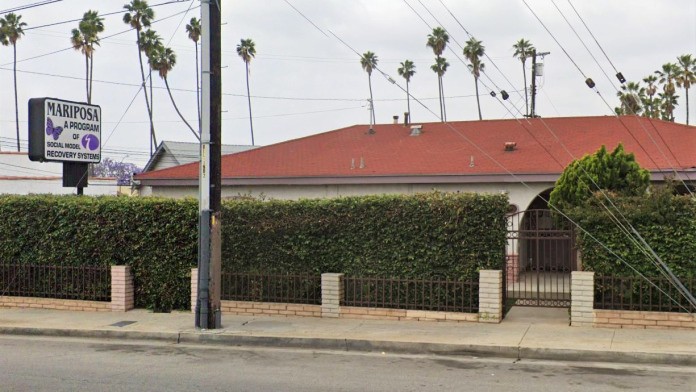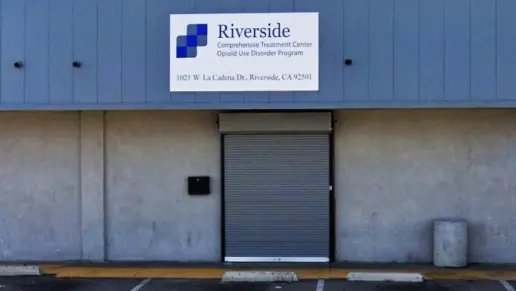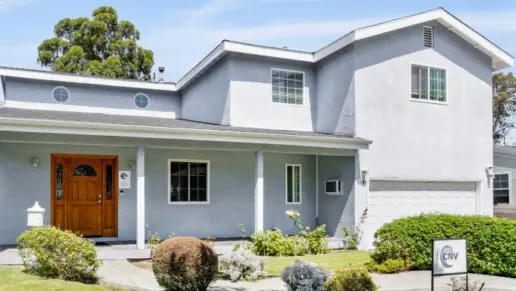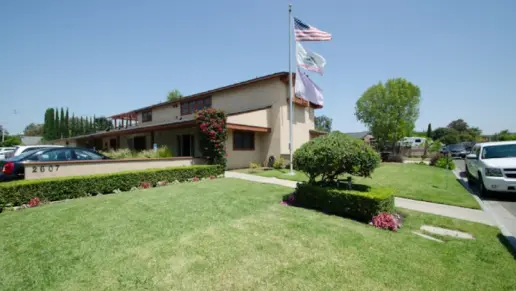About Social Model Recovery System – Mariposa
The nation’s entertainment capital, Los Angeles, California is home to Social Model Recovery Systems – Mariposa. Since 1986, Social Model Recovery Systems has served adults, youth and families battling addiction and mental health conditions.
Their Mariposa location opened in 1992 and provides a supportive living environment for women and mothers to connect and grow together. Whether you have commercial insurance, can pay out of pocket or require financial assistance, they ensure you get the help you need.
With residential care, you live on campus while receiving ongoing support and encouragement. Their program uses a social model approach, emphasizing staff and peer connections to reach sustained recovery. You can participate in group sessions focused on parenting, anger management, relapse prevention, domestic violence prevention and more. They also link you with medical, mental health,and thereputic services based on your unique situation.
What stands out most to me is their emphasis on family reunification. Addiction can tear families apart, leaving you with feelings of guilt and broken relationships. They strive to help you rebuild connections with your loved ones including regaining custody of your children if appropriate. I think is a wonderful approach because as you grow in recovery you can make essential changes to create a brighter future for you and your loved ones.
Another great feature that caught my eye was they offer transitional housing for families. Stepping away from your children can be one of the hardest parts of recovery. Once you complete their residential program then you can access a safe living environment to continue your journey with your children. You’ll benefit from ongoing support to advance in recovery and work on other essential life aspects like parenting, employment, and education.
Latest Reviews
Rehab Score
Gallery

Location
Other Forms of Payment
Self-pay involves paying for treatment out of your own pocket. You can use savings or credit, get a personal loan, or receive help from family and friends to fund your treatment. If you don't have insurance or your insurance plan doesn't cover a specific program, self-pay can help ensure you still get the care you need.
Private insurance refers to any kind of healthcare coverage that isn't from the state or federal government. This includes individual and family plans offered by an employer or purchased from the Insurance Marketplace. Every plan will have different requirements and out of pocket costs so be sure to get the full details before you start treatment.
Sliding scale payments are based on a client's income and family size. The goal is to make treatment affordable to everyone. By taking these factors into account, addiction recovery care providers help ensure that your treatment does not become a financial burden to you or your family, eliminating one barrier to care.
Addiction Treatments
Levels of Care
Treatments
The goal of treatment for alcoholism is abstinence. Those with poor social support, poor motivation, or psychiatric disorders tend to relapse within a few years of treatment. For these people, success is measured by longer periods of abstinence, reduced use of alcohol, better health, and improved social functioning. Recovery and Maintenance are usually based on 12 step programs and AA meetings.
Drug rehab in California teaches participants constructive ways to stay clean and sober. Treatment revolves around helping individuals stop using the substance they are addicted to and learn healthy habits to avoid relapse.
Many of those suffering from addiction also suffer from mental or emotional illnesses like schizophrenia, bipolar disorder, depression, or anxiety disorders. Rehab and other substance abuse facilities treating those with a dual diagnosis or co-occurring disorder administer psychiatric treatment to address the person's mental health issue in addition to drug and alcohol rehabilitation.
A combined mental health and substance abuse rehab has the staff and resources available to handle individuals with both mental health and substance abuse issues. It can be challenging to determine where a specific symptom stems from (a mental health issue or an issue related to substance abuse), so mental health and substance abuse professionals are helpful in detangling symptoms and keeping treatment on track.
Opioid rehabs specialize in supporting those recovering from opioid addiction. They treat those suffering from addiction to illegal opioids like heroin, as well as prescription drugs like oxycodone. These centers typically combine both physical as well as mental and emotional support to help stop addiction. Physical support often includes medical detox and subsequent medical support (including medication), and mental support includes in-depth therapy to address the underlying causes of addiction.
Programs


Clinical Services
Research clearly demonstrates that recovery is far more successful and sustainable when loved ones like family members participate in rehab and substance abuse treatment. Genetic factors may be at play when it comes to drug and alcohol addiction, as well as mental health issues. Family dynamics often play a critical role in addiction triggers, and if properly educated, family members can be a strong source of support when it comes to rehabilitation.
Group therapy is any therapeutic work that happens in a group (not one-on-one). There are a number of different group therapy modalities, including support groups, experiential therapy, psycho-education, and more. Group therapy involves treatment as well as processing interaction between group members.
In individual therapy, a patient meets one-on-one with a trained psychologist or counselor. Therapy is a pivotal part of effective substance abuse treatment, as it often covers root causes of addiction, including challenges faced by the patient in their social, family, and work/school life.
Amenities
-
Private Setting
Contact Information
223 E. Rowland Street
Covina, CA 91723


